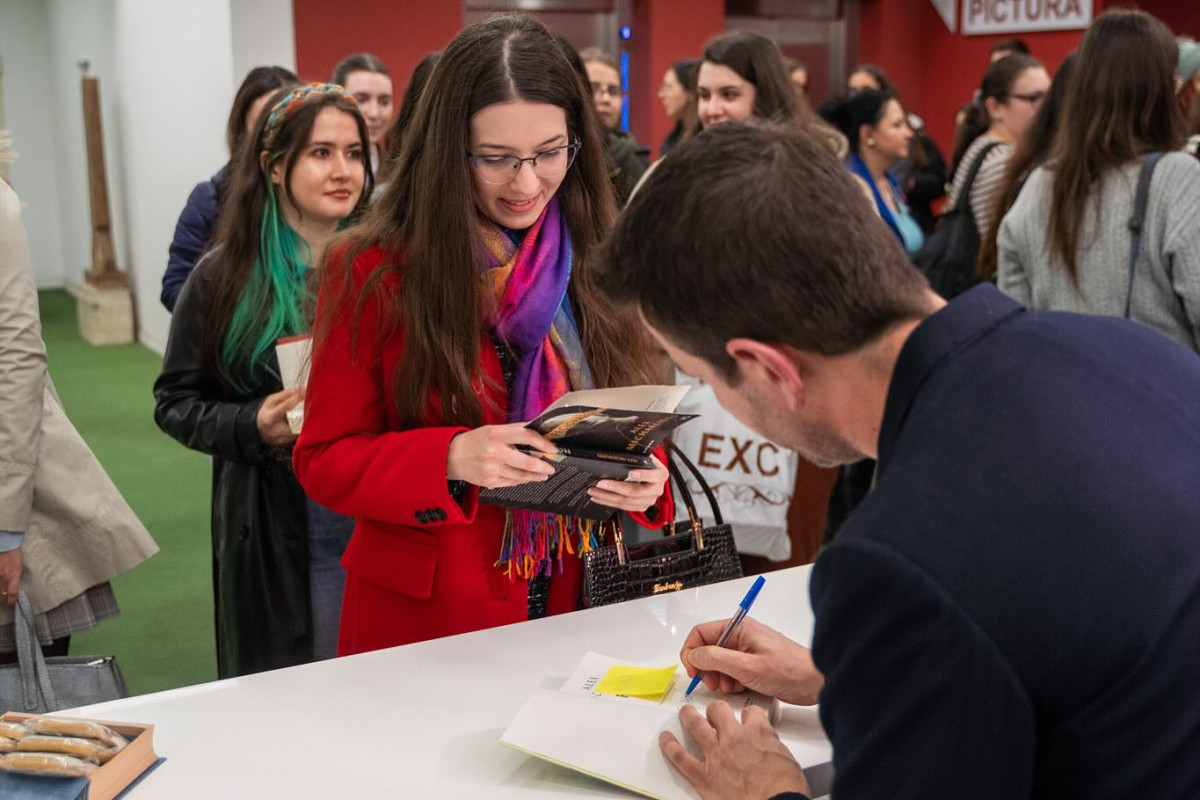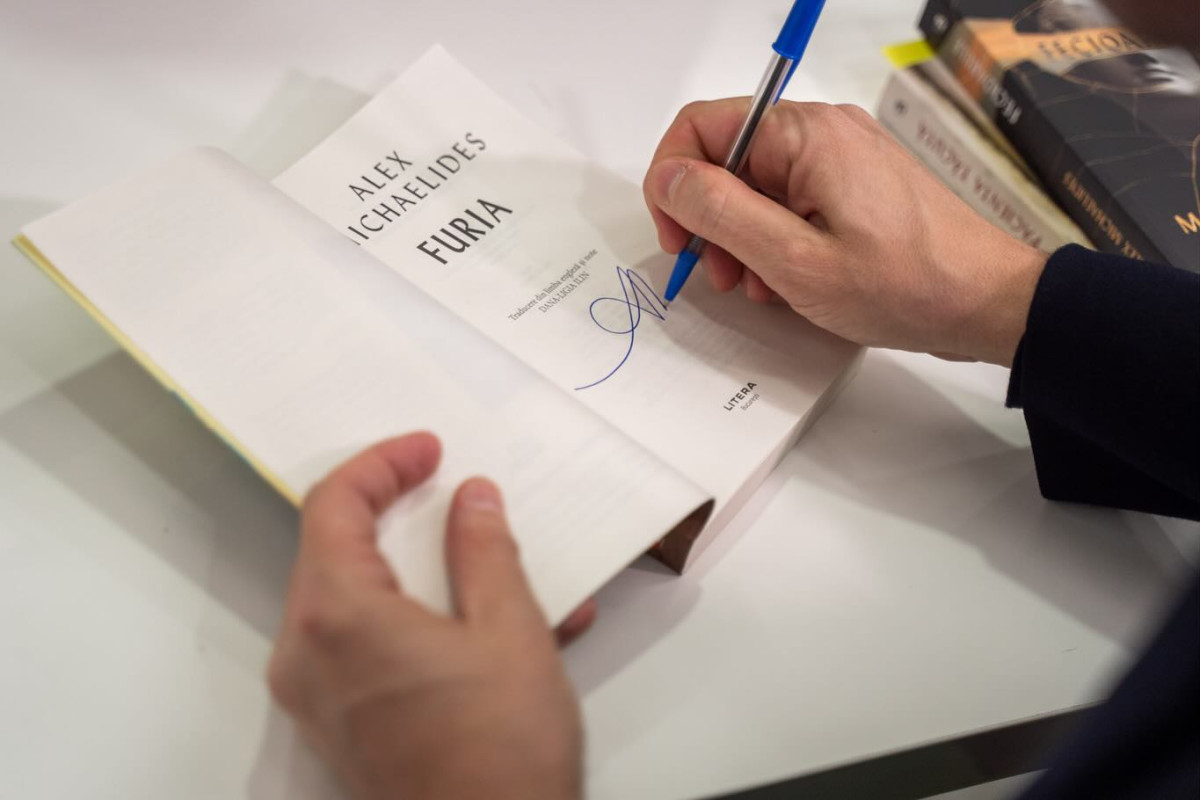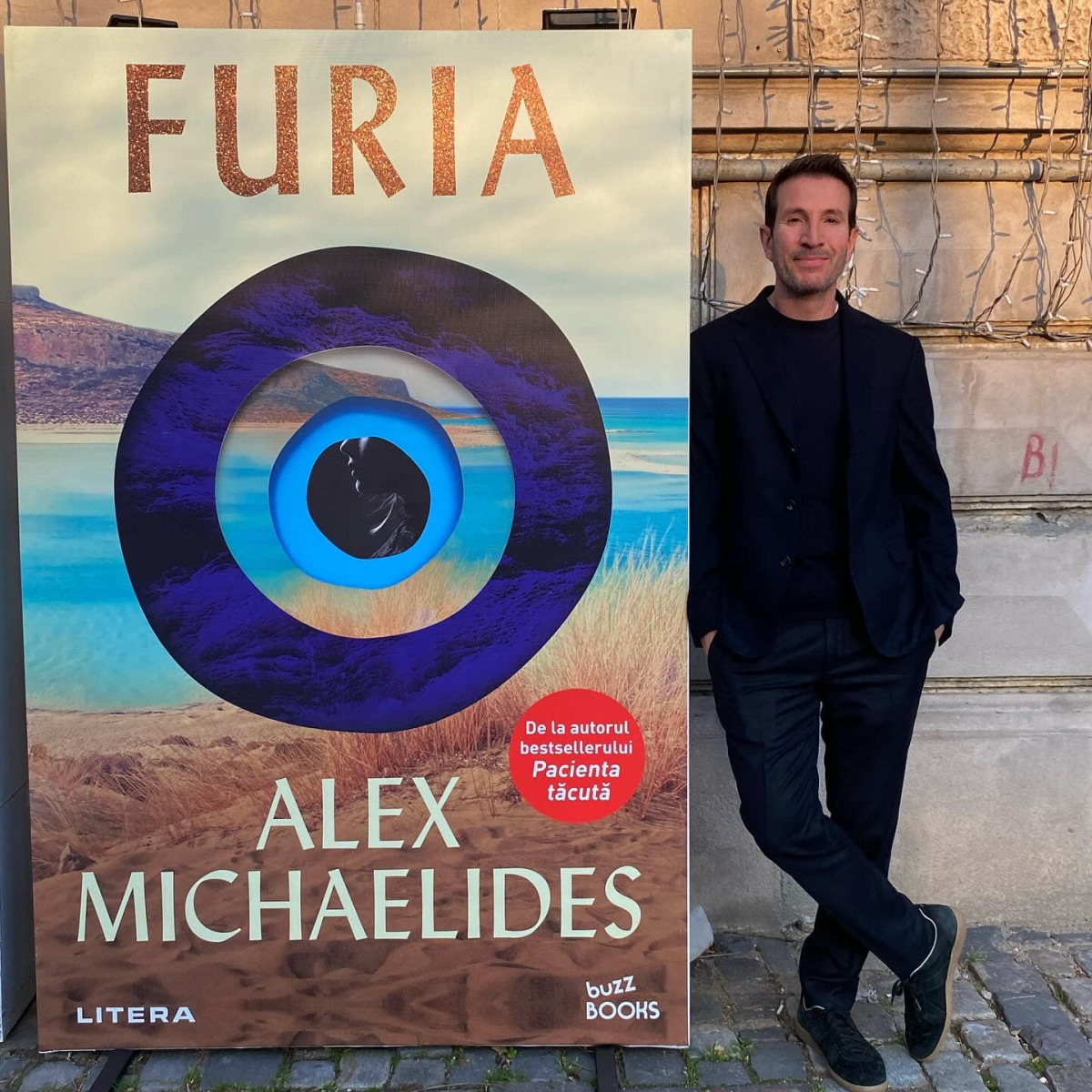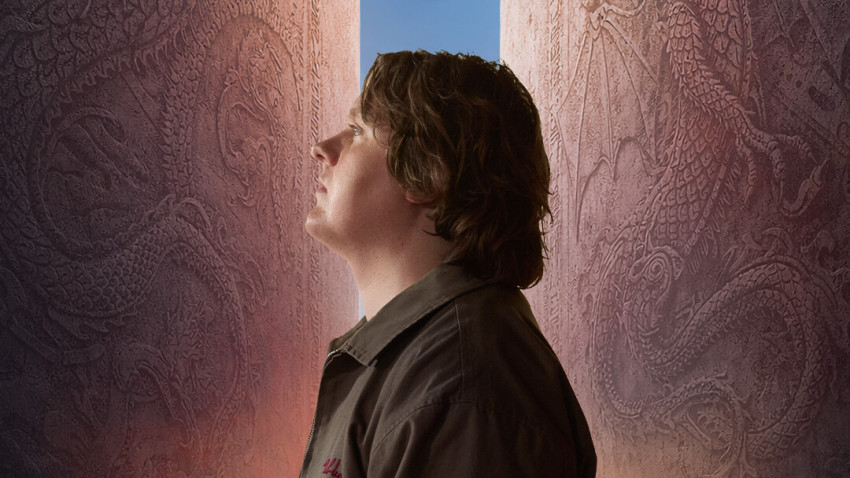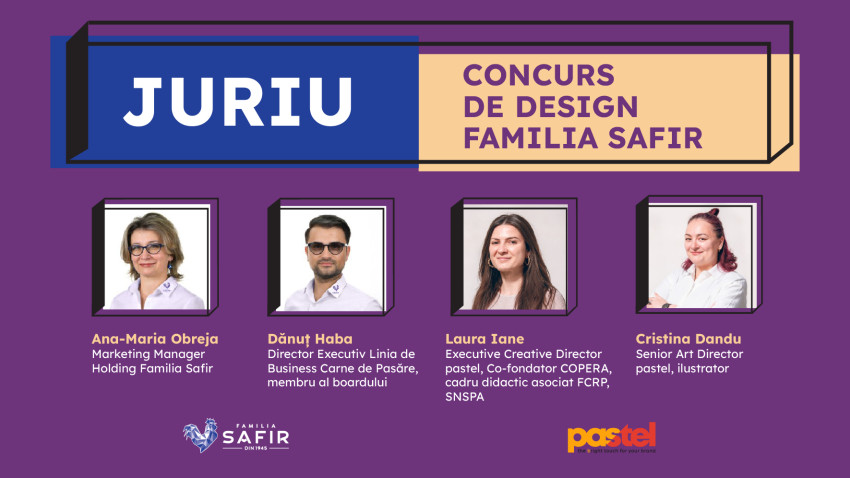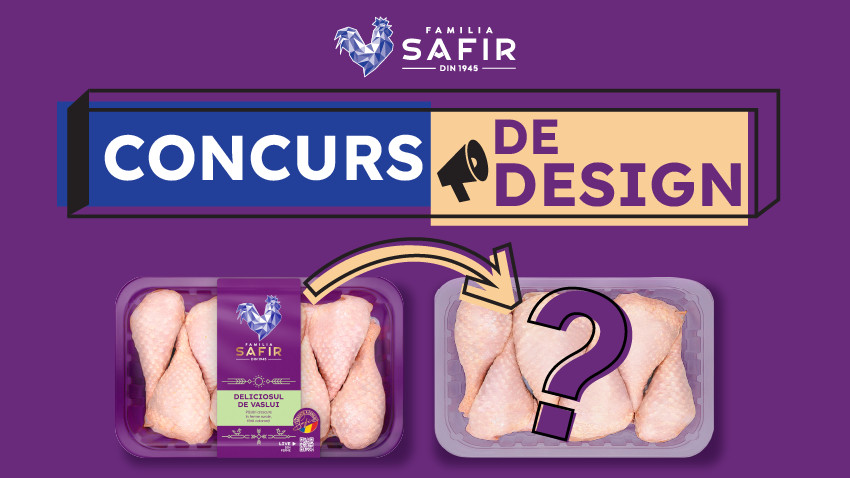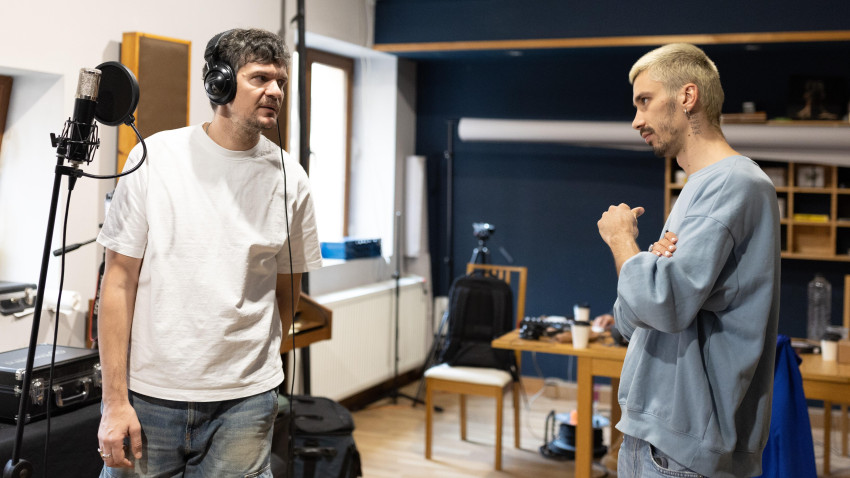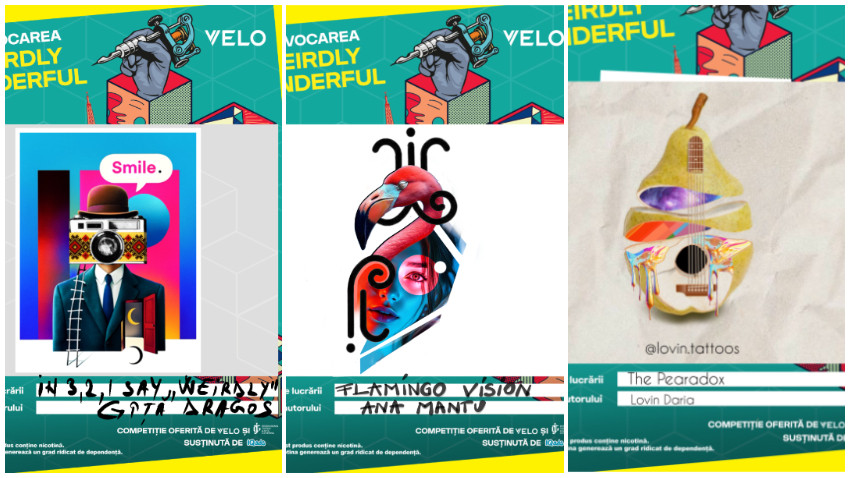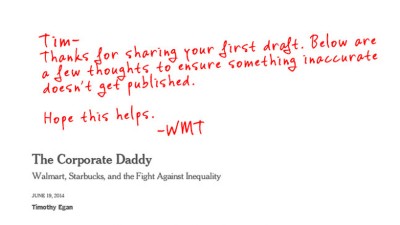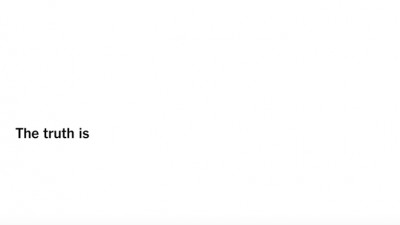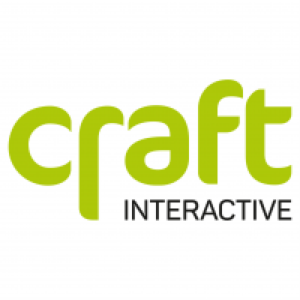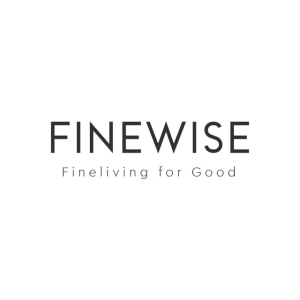For Alex Michaelides writing is re-writing. That's when the magic happens, in the editing. Writing is a craft that can be learned, he says. And that's what he does. He is trying to learn as much as he can. He worked on his first novel for more than 5 years. The Silent Patient debuted at #1 on the New York Times bestseller list, and has sold more than 6.5 million copies worldwide. His second novel, The Maidens, was an instant New York Times bestseller.
On the occasion of the release of his latest novel, The Fury, Alex Michaelides came to Romania at the invitation of the Litera publishing house.
"The joy of writing thrillers is that you can live a very normal life and then your characters can be really crazy, and they can do crazy things, but that doesn't mean that I do crazy things or I approve of the things that they do", says Alex.
Alex Michaelides was born and raised in Cyprus. He has an M.A. in English Literature from Trinity College, Cambridge University, and an M.A. in Screenwriting from the American Film Institute in Los Angeles.
We talked to Alex Michaelides about his new novel, the pressure of being a best-selling writer, the joy and pain of writing.
The pressure of being a best-selling writer
I listened to a very good interview with a writer and they asked him: what's the most wonderful thing that success can buy you? And he said: Time. And I thought it was such a brilliant answer.
With The Silent Patient, my life has completely changed. I say it it took me five years, but it probably took me longer to write that book, because I've been planning and thinking about it for a decade or longer. You can't put a time limit on your mind thinking. Things just happen when they happen. And so I needed a long time to just come up with the idea of The Silent Patient, but not consciously, just the way your imagination works. And so I wish that I had another five, six years for the next book.
I think I'm going to take more time with the next one because I want to get to a place where I don't feel the pressure. And there is pressure. Yeah, there is pressure. Because I had nothing to compare the first novel to, so there was no pressure. But then it's about trying to maintain success.
People have expectations
I don't care so much. I mean, yeah, the readers, obviously, I care about. I have many publishers, and they're very good friends now. And they spend so much money on something that I've written. And there's a great sense of anxiety that comes from that, because I don't want to let them all down. And they work so hard. I want to make sure that I'm doing my best job.
What came with the experience
I think I'm evolving the whole time. I'm trying to become a better writer. I've only written three books. And I started writing novels quite late in life. And so I feel like I'm trying to learn as much as I can.
I do find that most people stick to one way of writing. With my first two books, I planned them all very carefully, which I think was from insecurity. Because I felt nervous and I didn't quite know what I was doing. I thought the best way to do it is to try and remain in control. But it's quite laborious and a bit tiring. And it's not much fun doing that.
So I thought that this time I would try and change. You are either somebody who plans it or somebody who doesn't plan it. I don't know many people who switch. Most people just start with one and they stick with that. And this time I thought I would try and switch it. So, with The Fury, I just decided to try and write something without planning it.
I didn't know who the murderer was. I didn't know who the victim was. And I decided to write. And it was a lot of fun. And when I finished it, it didn't work. My editor said, either you can just throw the whole thing away or you can go back to the beginning and try again. And because I was having so much fun, I just thought, OK, I'm not going to panic. And I just closed my laptop and I walked around the park for a whole month.
And I came up with a new story with the same characters. And this time it worked. But it still involved a lot of rewriting.
It's about this process of allowing creativity to happen. For my next book, I'm going to combine those two approaches. I'll have a plan, but I won't necessarily stick to it.
The pain of writing
I always say that I hate writing, but I love having written. So at the end of the day, it's really satisfying when you've got two chapters written that you didn't have at the beginning of the day.
I love coming up with the ideas and I love editing, it's about getting the first draft down. And that's always difficult and painful. And it's never as good as you want it to be.
But when you edit, you can make it better. So that's why I always say that writing is rewriting, really. That's when the real magic happens, in the editing.
Who reads first
I do many drafts before I show it to somebody. And then I give it to my editor. I revise constantly. Until I can read it without wanting to throw up. Until I can get it to a place where I think, OK, someone else can read it now and not think this is terrible.
And then I get it to my editor and to my agent and they give me notes. And then I go away and do another draft. It's this kind of process of back and forth.
How do you take criticism
I take criticism really well. I think that's one of my best skills. Because when I was younger, I would get stuck on ideas that I thought were great or lines of dialogue that I thought were great.
And now I don't. I'm getting so much criticism being a screenwriter. Now, if someone gives me a good idea, I say, yes, wonderful. I take it. I don't have a problem in tearing up the book and starting from the beginning again.
I would like to rewrite The Maidens. It's annoying that I had ideas after I finished the novels. And I thought, I wish I could go back and change this and change that. So you never really finish, I think.
The only one I ever felt I finished was The Silent Patient because there was no deadline. My editing process was like that: a year and a half, two years, where I would print it out and I would make notes and then type up the notes and then go back and then print it out.
And I kept doing that until one day. I remember it so clearly, I was in a cafe in Hampstead, where I live. And I printed it out. And I had a pencil next to me and a coffee. And I read it. And I didn't read through the whole book. And I didn't pick up the pencil once to make one note. And I thought, OK, it's finished. It's finished. And then I tried to find an agent because I didn't have an agent at that point. And then it began.
I've never reached that with any of my other books because of time. There hasn't been enough time. So hopefully next time I'm going to try and give myself another year on top just to kind of edit it.
How do you feel when the book goes out in the world
Terrified. Yeah, honestly, just terrified. It's a difficult thing because i'm very self-critical and I expect people to hate it and if they say they they love it, i don't believe them. So, you know, I'm a mess.
You said that we all carry a traumatized child inside. How do you heal?
I don't think you heal, I think you learn to communicate. Let me give you an example. Once, when I was in my mid-20s, I was in the supermarket and there was this scary angry man standing right behind me and he was looking at me and I felt really scared suddenly. Then I thought, oh wait a second, it's not me feeling scared, it's a little boy I used to be, inside my head, and I'm not a little boy and this guy is not my father and if he did attack me, I could defend myself. Suddenly the fear went away.
That's what I mean about the traumatized child. If we carry a child inside our head it confuses the present and the past and sometimes we're afraid and we think we're afraid of something that's happening now, but actually it's an old fear that we're carrying from our childhood. It's about seeing it, it's not about changing it.
Wordsworth, who's one of my favorite poets, said that the creativity is about joy and only children have joy.
Do you find joy in writing?
I get joy in planning. Because there's a possibility there for it to make it perfect. Now I'm planning my next book and I have two ideas that I can't decide which one to do. I promised myself that I'm gonna get a detailed outline of each idea before I decide. So, what gives me the most joy is taking a blank piece of paper and sharpening the pencil and just writing the plot with the pencil. Just the story, just the the plot, and kind of draw arrows and get new ideas.
Writing rituals
I need to be alone. I've tried in cafes, but i want to kill people when I hear them talking.
I don't drink when I write, because it clouds your brain. If you've been drinking heavily the night before and then you try and write, the words won't come. I have a lot of coffee, I meditate.
I usually write in the afternoon because I've just put it off for as long as possible. And then I finally start.
The Fury
I'll carry three or four ideas around for years and then suddenly they'll combine and then I'll think Oh, that's a book. With The Fury it was different ideas that I had. The main idea was wanting to take on Agatha Christie's "And then there were none". It created a whole genre that book, so many people have copied that book, and we're so familiar with it now. I thought that the only way I could make something that was even slightly new would be to play with the reader's expectations of a book like that.
I thought of having a narrator who's very aware of the expectations of the reader and playing with them and became a dialogue between the narrator and the reader about the the genre of crime fiction itself, about the things that we expect to happen and playing with those expectations and subverting them.
The other idea was just to write something for my friend, who's an actress and has been a great inspiration to me and a great help. The first idea was to sell it as a tv series or make it into a film, not a book. But I wrote it as a short story and then it grew into a nuvel, bigger and bigger. I thought, okay, well, I'm going to make it into a book.
It's a totally reversed process, to think of a movie and then make it a book. When I wrote it, I had to forget about it being a film and just try and make it a book. And now, as I'm adapting it for screen, I'm realizing there's all kinds of things that I can't put on screen.
The movie adaptation of your books
I think you have to let people tell their own story. When I was at film school, they said to us: a film gets made three times. The first time the writer makes it, then the director makes it, then the editor makes it, and each time it's a different story entirely. So I think you can't control everybody else's interpretation of your work, I can just focus on my book, because that's all that I can control.
Your favorite book-to-movie adaptation
It's Witness for the Prosecution. Billy Wilder is one of my favorite writer-directors, he made The Apartment and Sunset Boulevard. He took this Agatha Christie play and he made Witness for the Prosecution. The book had a very good twist and is very clever, but the characters are, as they often are with Agatha Christie, empty and boring. And he brought his genius and he created new characters, he created personalities. The film that he made is just brilliant, because you have this great plot, but at the same time you have characters that you believe in.
Do you love your characters? Do you hate them?
No, I don't hate them. I don't judge them. I think of them like friends. If you have close friends, you can't judge them.
In the new novel, this character of Barbara West, she's a famous writer and she's evil. I had so much fun writing, because I didn't plan her and she just appeared as I was writing. I thought, oh, she's interesting, who is this person?
She kept coming back more and more as I was writing the novel, and now as I'm writing the screenplay, I'm writing new scenes for her. And it's great to have a character who's so mean and is so horrible. It's a lot of fun to write that. She has a sense of humor as well, it's been a joy to discover her. I don't know where she came from.
Do you live in your characters?
I think they're all me, to a certain extent. They're all bits of me. The joy of writing thrillers is that you can lead a very normal life and then your characters can be really crazy, and they can do crazy things, but that doesn't mean that I do crazy things, or I approve of the things that they do.
I put aspects of myself in all of them. You have to, otherwise you can't write them realistically, you know? I have to kind of find myself in all of them, I suppose.
Can writing be learned?
I think it's a craft. You can learn it, I do. I don't think I was very good for a very long time. I still don't think I'm great. But I think I'm improving. I work really hard at it, and I just get better and better.
There's a famous quote by Delacroix, the painter, who said, "learn to become a craftsman, it won't stop you from being a genius". And I think it's really true.
I think you need to learn the craft of it. I learned the craft by studying. I just studied Agatha Christie again and again and again. And when I mean study, I mean I've read her books so many times and I break them down, and I take notes, and I look at how she sets something up, and how she puts a twist, and what the red herrings are. Without that, I couldn't have written.
So, yeah, I do think you can learn writing.
Maybe some writers don't admit it that they don't feel very good, but I would not trust someone who would sit here and tell you that they think their novels are amazing, that they think they're genius, because that means they're crazy.
What were your favorite writers when you were a teen
I loved John Fowles. I just reread The Magus and the Collector last summer. I loved his work.
It's funny, I was thinking about this quite a lot, about what makes a novel attractive to teenagers. When I reread The Magus now... I loved the first half, and then I started to get very annoyed with it, and I just thought that this is so pretentious, and it doesn't make sense. I had a real problem with the way he represented women. It's very sexist. I'd say it's almost misogynistic. They're always sexualized. I was kind of surprised how much I disliked his writing. But then I thought The Collector was brilliant, reading that again, like totally brilliant.
Maybe when we're young, when we're teenagers, we're less critical, but we're more... excited by ideas, and feelings.
If your life would be a book, what title would it have?
You know, I'm not a very quick person, so I need like only two or three days to come up with an answer to this. Let me just think about it for a second. What would the title be? I'm bad at titles anyway.
I hope I never have to write this book. Because it wouldn't be good. But I think I would start... I would start with my parents meeting. That's probably where I would start. I mean, you can't go back far enough.
In my next book, you know, I have the same two ideas. One of the ideas is based very much around my childhood. And I just think, how far back can you go? My parents meeting isn't far back enough. Maybe when their parents met, it would be better. It's about the journey.
I think you're born with so much stuff coming at you from your parents and the way they think. And that comes from their childhood. It needs to go back to their childhood, their parents' childhood.



